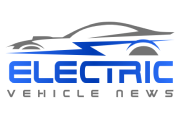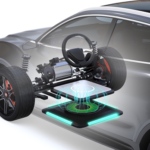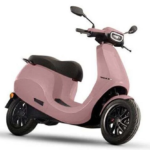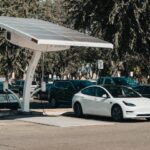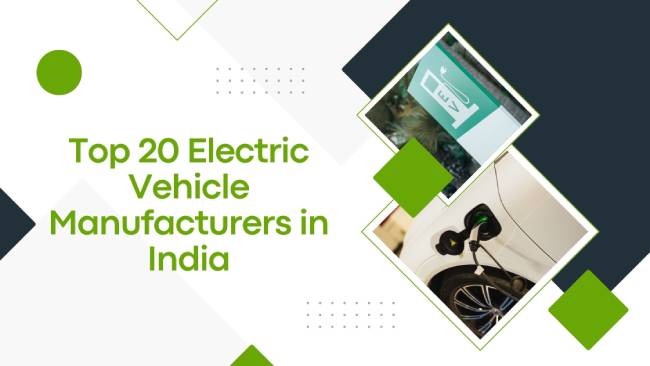
Electric vehicles (EVs) are revolutionizing the automotive industry in India, and the country is swiftly transitioning towards a cleaner and more sustainable mode of transportation. As environmental concerns gain prominence, the demand for electric vehicles has surged. This article will delve into the top 20 electric vehicle manufacturers in India, shedding light on their contributions to the EV landscape.
The Electric Vehicle Revolution in India
India, like many countries, is grappling with the environmental challenges posed by traditional internal combustion engine vehicles. Air pollution, greenhouse gas emissions, and dependence on fossil fuels have spurred the need for cleaner alternatives. Electric vehicles, with their zero-emission characteristics, have emerged as a promising solution.
The Indian government has been proactive in promoting electric mobility. Incentives, subsidies, and policies have been put in place to encourage the production and adoption of electric vehicles. This has not only attracted domestic manufacturers but has also enticed global players to invest in the Indian EV market.

Advantages of Electric Vehicles
Electric vehicles come with several advantages, making them an attractive option for both consumers and manufacturers:
- Environmentally Friendly: EVs produce zero tailpipe emissions, reducing air pollution and mitigating climate change.
- Lower Operating Costs: Electric vehicles have lower fuel and maintenance costs compared to their gasoline or diesel counterparts.
- Energy Efficiency: EVs are more energy-efficient as they convert a higher percentage of the electrical energy from the grid to power at the wheels.
- Silent Operation: Electric vehicles are quieter, reducing noise pollution in urban areas.
- Reduced Dependence on Oil: EVs reduce a country’s reliance on imported oil, promoting energy security.
Challenges Faced by the EV Industry
While the future looks promising for electric vehicles in India, there are several challenges that need to be addressed:
- High Initial Cost: Electric vehicles tend to have a higher upfront cost due to the expensive battery technology. However, this cost is gradually decreasing.
- Charging Infrastructure: The availability of charging infrastructure is still limited in many parts of the country. To promote EV adoption, a robust charging network is essential.
- Range Anxiety: Concerns about the limited driving range of electric vehicles persist, although newer models are offering longer ranges.
- Battery Recycling: Developing a sustainable and efficient system for recycling and disposing of EV batteries is crucial to reduce environmental impact.
- Consumer Awareness: Many consumers are still unaware of the benefits and features of electric vehicles. Raising awareness is essential for their wider acceptance.
The Role of Top 20 Electric Vehicle Manufacturers
The top 20 electric vehicle manufacturers in India play a pivotal role in addressing these challenges and driving the electric mobility revolution. Let’s explore how each of them is contributing to this transformation:
Tata Motors Ltd.
Tata Motors has been a front-runner in the Indian EV market, offering a range of electric vehicles, including the Tata Nexon EV. They have been actively involved in developing electric buses and commercial vehicles, contributing to sustainable public transportation.
Ampere Vehicle Pvt Ltd
Ampere Vehicle Pvt Ltd specializes in electric scooters and two-wheelers, providing affordable and eco-friendly options for urban commuters. Their products cater to a wide range of customers, including delivery services and individual riders.
Ather Energy Private Limited
Ather Energy has made a mark in the EV industry with its smart electric scooters. These scooters are not only environmentally friendly but also equipped with cutting-edge technology, offering a unique riding experience.
Electrotherm (India) Limited
Electrotherm focuses on electric two-wheelers and e-rickshaws, addressing the last-mile connectivity needs of both urban and rural areas. Their products contribute to reducing pollution and enhancing mobility options.
ATUL Auto Limited
ATUL Auto Limited specializes in electric rickshaws and three-wheelers, which serve as vital modes of transportation in many Indian cities. These vehicles are cost-effective and eco-friendly alternatives to traditional auto-rickshaws.
Hero Electric Vehicles Pvt. Ltd.
Hero Electric is a prominent name in the Indian electric two-wheeler market. They offer a wide range of electric scooters designed to meet the needs of various consumers, from daily commuters to commercial users.
Hyundai Motor India Ltd.
Hyundai’s entry into the Indian electric vehicle market with the Hyundai Kona Electric has been significant. They offer a premium electric SUV that has garnered attention for its performance and range.
JBM Group
JBM Group’s focus on electric buses is pivotal for sustainable public transportation. Their contribution to eco-friendly mass transit solutions aligns with India’s urbanization and congestion challenges.
Mahindra & Mahindra Limited
Mahindra & Mahindra has a robust portfolio of electric vehicles, including the eKUV100 and eVerito. They are actively involved in promoting electric mobility solutions for personal and commercial use.
MG Motor India Private Limited
MG Motor has introduced electric SUVs like the MG ZS EV in India, catering to the growing demand for premium electric vehicles. Their emphasis on EVs demonstrates the global interest in India’s EV market.
Okinawa Autotech International Private Limited
Okinawa is known for its electric scooters, which are popular for their performance and affordability. Their products are tailored to meet the needs of Indian consumers, especially in congested urban areas.
Bajaj Auto Limited
Bajaj Auto, a traditional motorcycle manufacturer, has ventured into electric two-wheelers with the Chetak Electric Scooter. Their entry into the EV market brings competition and innovation.
Olectra Greentech Limited
Olectra Greentech’s focus on electric buses has been instrumental in introducing cleaner and more efficient public transportation options. Their commitment to sustainable mobility is commendable.
Piaggio & C. S.p.A.
Piaggio’s introduction of electric versions of their iconic Vespa scooters in India showcases their commitment to electric mobility. They combine style and sustainability in their offerings.
Greaves Electric Mobility Private Limited (‘GEMPL’)
Greaves Electric Mobility, with its Ampere electric scooters, provides eco-friendly mobility solutions that are affordable and accessible to a wide range of consumers.
TVS Motor Company
TVS Motor Company has diversified its portfolio with the TVS iQube Electric, contributing to the electric scooter segment. Their expertise in manufacturing and distribution plays a vital role in promoting EVs.
VE Commercial Vehicles Limited
VE Commercial Vehicles, a joint venture between the Volvo Group and Eicher Motors, is working on electric buses and trucks. Their efforts cater to the growing need for clean commercial transportation solutions.
Ashok Leyland
Ashok Leyland’s foray into electric buses is a significant step towards sustainable urban transportation. Their expertise in manufacturing commercial vehicles positions them well in the EV market.
Ola Electric
Ola Electric, a subsidiary of Ola Cabs, is developing electric scooters and building a charging infrastructure network. Their integration with a ride-hailing platform can accelerate EV adoption.
Kia Motors
Kia Motors’ entry into the Indian EV market with the Kia Soul EV signifies the global interest in India’s electric vehicle potential. Their offerings cater to the discerning consumers looking for electric SUVs.
The collective efforts of these top 20 electric vehicle manufacturers in India are driving the nation towards a greener and more sustainable future. Their contributions span across various segments of electric mobility, from two-wheelers to buses, catering to the diverse needs of Indian consumers and businesses.
The Road Ahead for Electric Vehicles in India
The Indian electric vehicle market is poised for exponential growth in the coming years. Several factors will contribute to this trajectory:
1. Government Initiatives
The Indian government’s initiatives, such as the Faster Adoption and Manufacturing of Hybrid and Electric Vehicles (FAME) scheme, provide incentives and subsidies for EV manufacturers and buyers. These policies are instrumental in promoting electric mobility.
2. Advancements in Battery Technology
As battery technology improves and becomes more cost-effective, electric vehicles will become more affordable, addressing one of the major barriers to adoption.
3. Charging Infrastructure Expansion
The expansion of charging infrastructure is a critical factor in encouraging consumers to switch to electric vehicles. Public and private investments in charging stations are expected to increase significantly.
4. Competitive Pricing
With more manufacturers entering the market and scaling up production, the prices of electric vehicles are likely to become more competitive, making them accessible to a broader consumer base.
5. Environmental Awareness
Growing environmental consciousness among consumers is driving the demand for cleaner transportation options. Electric vehicles align with this trend.
6. Urbanization
Rapid urbanization in India is increasing the need for sustainable and efficient urban transportation solutions. Electric buses and two-wheelers are well-suited to address this demand.
7. Global Partnerships
The Indian market’s attractiveness has led to collaborations and partnerships between Indian and international companies, fostering innovation and technology transfer.
Conclusion
The top 20 electric vehicle manufacturers in India are pivotal players in the country’s electric mobility transformation. Their contributions range from affordable electric two-wheelers to premium electric SUVs and buses, catering to the diverse needs of Indian consumers and businesses.
As India grapples with environmental challenges and the need for cleaner transportation options, electric vehicles offer a promising solution. Government support, advancements in battery technology, and the expansion of charging infrastructure are all contributing to the growth of the Indian EV market.
With the combined efforts of manufacturers, policymakers, and consumers, India is on the path to reducing its carbon footprint and building a more sustainable transportation ecosystem. The top 20 electric vehicle manufacturers are not only shaping the future of mobility in India but also contributing to global efforts to combat climate change and promote clean energy solutions.
